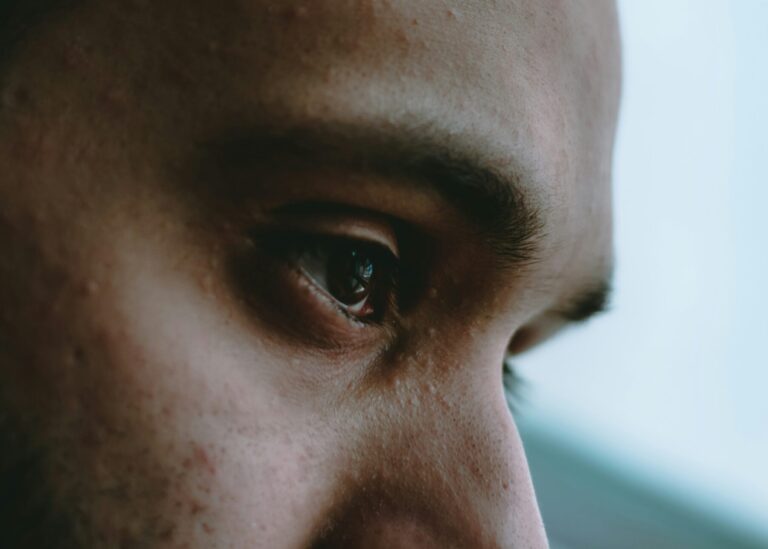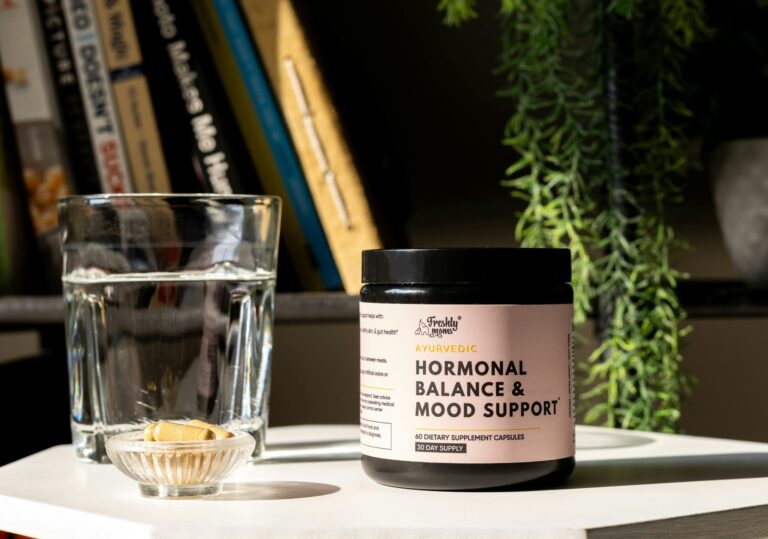5 Sleep Habits That Improve Anxiety and Depression
As we look around, we see a lot of people suffering from anxiety and depression. This fast-paced world is filled with many smiling faces that often conceal hidden sadness. Although the reasons behind depression and anxiety can vary, sleep and mental health are deeply connected. Research shows that poor sleep can intensify symptoms of anxiety and depression, while healthy sleep patterns can significantly improve emotional well-being. So here I am to break down 5 sleep habits that improve anxiety and depression, backed by science and expert advice. By applying these changes consistently, you’ll not only get better rest but also support your long-term mental health.
Want to learn more about health and wellness? Visit Healnology and enjoy reading our informative articles.
Why Sleep Is Linked to Anxiety and Depression
Sleep and your mind have a close connection; if your mind is at peace, you’ll have a restorative sleep session, if not, you’re most likely to stay awake all night.
Studies from the National Institute of Mental Health reveal that people struggling with anxiety or depression are far more likely to experience insomnia and poor-quality sleep.
Dr. Matthew Walker, neuroscientist and author of Why We Sleep, explains:
“Sleep is the single most effective thing we can do to reset our brain and body health each day. When sleep is deficient, there is sickness and disease. When sleep is abundant, there is vitality and health.”
This is why when your sleep is poor, it makes it harder for your brain to regulate emotions, which in turn allows negative thoughts to enter your mind and increases your stress levels.
However, there are some simple habits that, if incorporated in your daily life, can improve your sleep quality and contribute a lot to reducing anxiety and depression.
You can get our guide on “Why Do I Feel Tired All the Time Even After Enough Rest?” here.
5 Sleep Habits That Improve Anxiety and Depression
Now let’s move straight to the most effective sleep strategies that directly support mental health.
1. Create a Consistent Sleep Schedule
By creating a consistent sleep schedule, I mean going to bed and waking up at the same time every day, including weekends. This method trains your body’s internal clock.
According to the Sleep Foundation, this regularity stabilizes circadian rhythms, making it easier to fall asleep and wake refreshed.
Dr. Shelby Harris, a behavioral sleep medicine specialist, notes:
“Consistency is key. When you keep a regular sleep schedule, your brain knows when to release melatonin and when to wake up. This balance supports mood stability and reduces anxiety symptoms.”
This will allow you to see a huge difference in reducing nighttime racing thoughts and morning fatigue, definitely helping people with anxiety and depression.
2. Limit Screen Time Before Bed
Okay, so this is one of the most common problems in today’s generation, that our day starts with smartphones and ends with smartphones too. We might find it really relaxing to scroll through our phones at night, but it’s actually harming our sleep quality. There are harmful rays coming out of your screens, which suppresses melatonin, the hormone that signals your body it’s time to take rest.
According to a Harvard Health report, our exposure to blue light two hours before bedtime can delay our sleep by up to an hour. For those dealing with anxiety and depression, this delay worsens mood regulation and increases stress.
Instead of scrolling, try reading a book, journaling, or listening to calm nature sounds.
3. Practice Relaxation Before Sleep
Relaxation techniques can really, really do wonders to improve your mental health. These techniques include mindfulness meditation, deep breathing, and progressive muscle relaxation, which signals your brain to shift from alertness to rest. This, in turn, can reduce your stress hormones and improve your sleep quality.
Jon Kabat-Zinn, creator of Mindfulness-Based Stress Reduction (MBSR), explains:
“Mindfulness practice allows us to recognize and step away from our habitual reactions to stress. It helps us respond to challenges with clarity and calmness.”
Even just 10 minutes of guided meditation before bed can ease anxiety, quiet racing thoughts, and prepare your body for deep sleep. Apps like Headspace and Calm offer structured programs designed specifically for sleep and mental health.
You can also read our full guide on the 7 Best Free Mental Health Apps for Stress and Anxiety Relief, and thank me later.
4. Improve Your Sleep Environment
Imagine sleeping in a room with lights turned on, unnecessary noise, and an uncomfortable mattress. Your sleep quality is directly linked to the environment you sleep in. A cool, dark, and quiet bedroom is ideal for restorative rest. According to CDC guidelines, an optimal sleep environment should include a comfortable mattress, blackout curtains, and minimal noise.
Dr. Rafael Pelayo from Stanford Center for Sleep Sciences says:
“Think of your bedroom as a sanctuary for rest. The fewer distractions you allow, the stronger your brain’s association with sleep becomes.”
So the small changes you make in your room, like adjusting room temperature, adding calming scents like lavender, using white noise machines, or comfortable mattresses, can improve emotional stability and promote a quality sleeping experience.
5. Avoid Stimulants Late in the Day
Most of the people around us are addicted to evening teas, coffees, and heavy meals late at night, which can interfere with their sleep cycle. For people with anxiety, caffeine, nicotine, and other stimulants can intensify restlessness and make it harder for the mind to calm.
A study in the Journal of Clinical Sleep Medicine found that consuming caffeine even six hours before bedtime significantly reduced total sleep time.
Dr. Chris Winter, sleep neurologist, explains:
“The effects of caffeine are often underestimated. Even small amounts in the afternoon can disrupt sleep architecture, leading to lighter, more fragmented sleep.”
So what to do? You can switch to herbal teas, warm milk, or water after midday to support a smoother transition into rest. Keep your nighttime meals lighter on the stomach, because a balanced diet can go a long way for your overall well-being.
Read our guide on “Beginner’s Guide to a Balanced Diet“.
Additional Tips for Better Mental Health Through Sleep
While the five main habits play a sufficient role in healthy sleep, there are several other additional lifestyle changes that, if incorporated with these habits, can do wonders in improving sleep quality:
- Regular physical activity is one of the most effective ways to promote quality sleep. Research from the Sleep Foundation indicates that individuals who exercise regularly tend to fall asleep faster and experience more restful sleep.
- Balanced nutrition is another important factor. Diets rich in whole foods, complex carbohydrates, and magnesium-rich ingredients (like spinach, almonds, and bananas) can naturally support better sleep cycles.
- Cutting off alcohol is also very important in improving sleep quality. While alcohol might make you feel drowsy, it actually interferes with deep sleep stages and often leads to night waking, leaving you more fatigued and mentally drained the next day.
Apart from this, there are many people who might wonder whether they should go for meditation or medication for their mental wellness, here I’ve written this article for your confusion, Meditation vs Medication: Which Mental Health Strategy Is Right for You?
Conclusion: 5 Sleep Habits That Improve Anxiety and Depression
Sleep quality is one of the most crucial aspects in our lives, which not only affects our mental health but also our overall well-being. Improving sleep is one of the simplest yet most effective ways to support mental health. By practicing these 5 sleep habits that improve anxiety and depression, maintaining a consistent schedule, limiting screen time, practicing relaxation, optimizing your environment, and avoiding stimulants, you can create a strong foundation for emotional resilience.
As Dr. Matthew Walker, a neuroscientist and author of Why We Sleep, explains: “The shorter your sleep, the shorter your life. Sleep is the single most effective thing we can do to reset our brain and body health each day.”
Although quality sleep alone won’t cure your anxiety and depression permanently, it will significantly reduce your symptoms. Start with one habit tonight, stay consistent, and notice how your mental well-being transforms. By following these 5 sleep habits that improve anxiety and depression, you can take small but powerful steps toward building a healthier life.
Related Reads
If you found these 5 sleep habits that improve anxiety and depression helpful, you may also enjoy:
- Why I Can’t Stop Overthinking at Night-What It Really Means and How to Find Relief
- Why You Get Dark Circles Despite Sleeping Well (Hidden Causes)
- Excessive Hair Fall at a Young Age? 5 Hidden Reasons No One Talks About
- How to Manage Stress for Better Physical Health
These articles explore other health and lifestyle changes that can improve your well-being and support a healthier mind and body.
FAQs About Sleep, Anxiety, and Depression
Yes. Research from the National Institute of Mental Health shows that quality sleep helps regulate mood and lowers stress hormones like cortisol. When you practice consistent sleep habits, you’re giving your brain the chance to reset emotionally, which can significantly reduce anxiety and depressive symptoms.
Most adults need 7–9 hours of sleep per night, according to the Sleep Foundation. Getting less than 6 hours regularly has been linked to increased risk of anxiety, depression, and poor concentration. The key is not just quantity but also quality of sleep.
The most effective sleep habits for anxiety include creating a consistent bedtime routine, limiting screen time before bed, practicing relaxation techniques such as meditation, and avoiding caffeine in the evening. These small but powerful changes reduce overthinking at night and promote a calmer state of mind.
Poor sleep disrupts the brain’s ability to regulate emotions. According to Harvard Health Publishing, chronic sleep deprivation changes brain chemistry, reduces serotonin levels, and increases negative thinking patterns, all of which make depression worse.
Short naps (20–30 minutes) can improve alertness and reduce stress. However, long or irregular daytime naps may interfere with nighttime sleep, leading to poor sleep quality. If you struggle with anxiety or depression, it’s best to prioritize consistent night sleep over long daytime naps.







